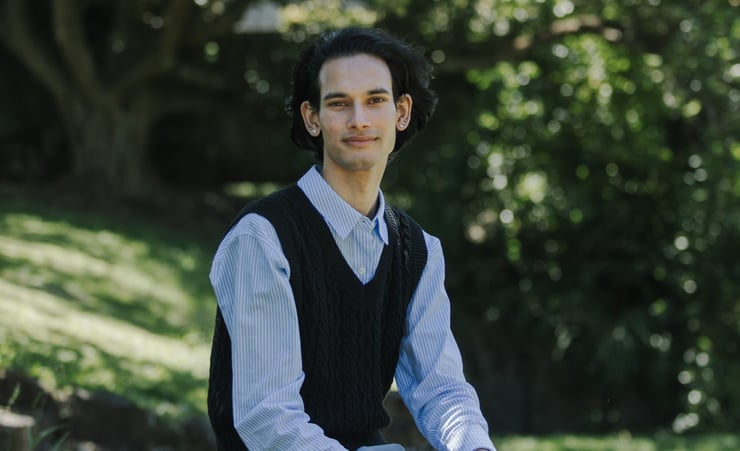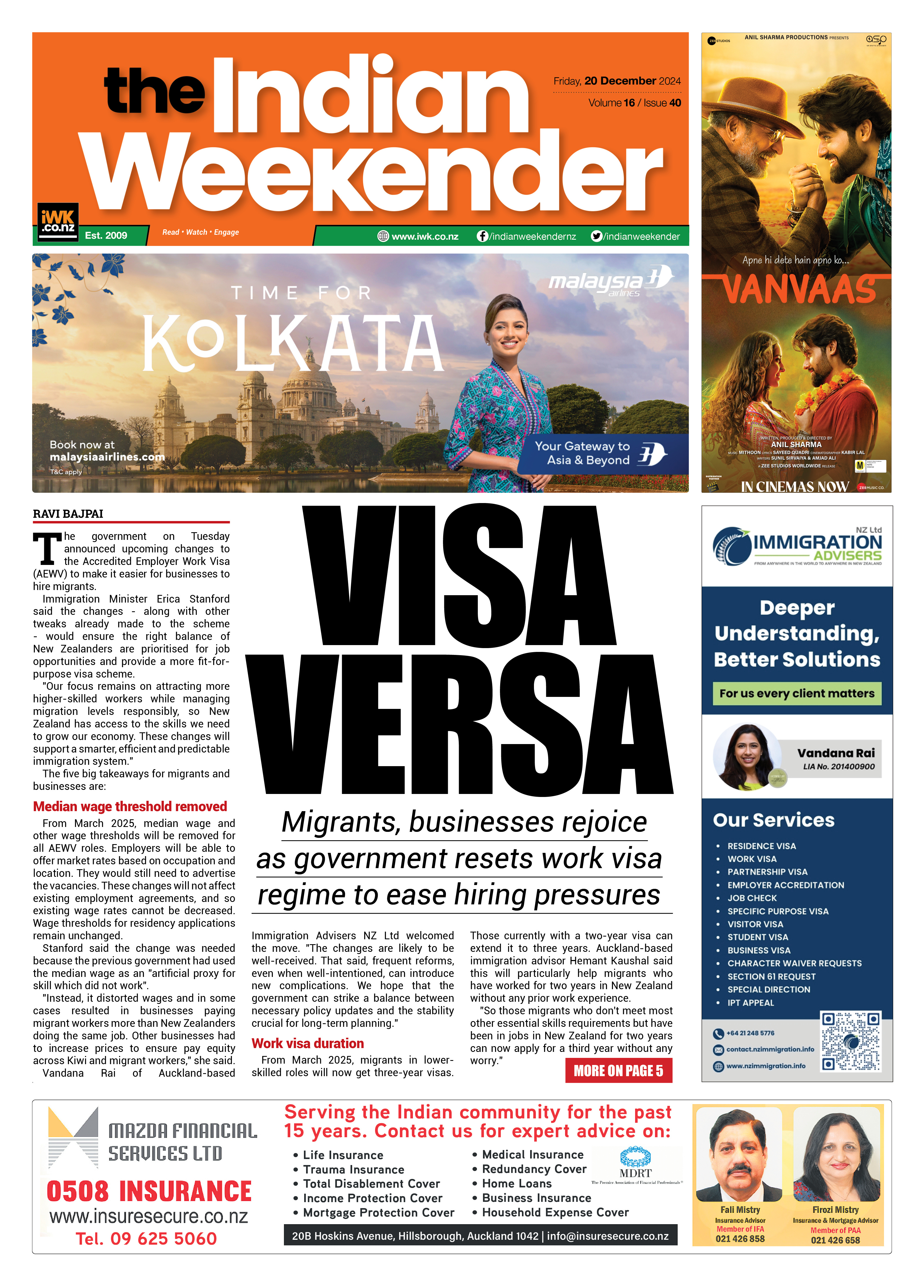‘Bittersweet’: Shaneel Lal on winning Young New Zealander of the Year award

Rainbow community leader and activist Shaneel Lal made history by becoming the first transgender person to win at the New Zealander of the Year awards since it was first held in 2010.
A transgender person, or trans, is someone whose gender identity or gender expression does not correspond with their sex by birth. The 22-year-old Fiji-Indian, who has chosen the pronoun ‘they’, has been named Young New Zealander of the Year for their work in the rainbow community.
The founder of the Conversion Therapy Action Group, Lal underwent conversion therapy as a child in Fiji. At 14, they moved to New Zealand to escape constant attempts to change their sexuality and gender.
In a candid conversation with The Indian Weekender, Lal bared their heart out and talked about matters close to their heart.
Q1. What were your thoughts after winning the award?
It is bittersweet. Bitter because it has taken us 13 years. Sweet because we are finally here. I won because of the work I did to ban conversion therapy rather than to fill a diversity quota. There are countless trans people in almost every community in Aotearoa doing the hard yards. I hope that this means that more trans people will be recognised for the work they do to make Aotearoa a better place.
Q2. What does this award mean for the transgender community?
It shows trans people that there is a reality in which they can be happy. It can be easy for trans people to indulge in sadness because trans lives can often be surrounded by trauma. However, I hope this award disrupts that chain of thought. I hope it encourages trans people to go after what they want to achieve in life because it is entirely plausible that they will get them.
Q3 Being a Fiji-Indian, how difficult has your journey of reaching this milestone been?
I think the Indian and Fijian communities can be very conservative. Attitudes are changing, albeit slowly. Queer and trans people of colour sit at the intersection of culture and queerness, meaning we can be affected by both racism and homophobia and transphobia. Intersectional oppression means that queer and trans people of colour have more barriers. I am proud to have overcome many of those barriers, and I hope that I have knocked some of those barriers down for other people.
Q4. How have you seen the perception of people changing towards transgender people in New Zealand?
Absolutely. A few weeks ago, an anti-trans advocate Posie Parker came to New Zealand to host her anti-trans rally. About 50 people attended to support her, and about 5,000 counter-protested her anti-trans rally. The tides are turning, and more and more New Zealanders are getting up and saying they will put up with transphobia.
Q5 How do you think the NZ government can help change the perception?
At present, hate speech that incites violence against trans people is legal. The government needs to ban hate speech that incites violence against trans people. There is an incredibly long waitlist for trans people seeking gender-affirming surgeries. This is another area the government can prioritise to assist trans people.
Q6. Tell us about your journey from Fiji to NZ.
I was born in 2000 in a small village in Fiji. I knew I was queer from an early age. There was a vibrant trans community, they
performed at weddings and other ceremonies. Equally, that community was not treated well in different contexts. I moved countries in 2014 and got involved in the movement to ban conversion therapy at 17. We banned conversion therapy in 2022.
Q7 What is your message to transgender people?
For all the trans people fighting to live another day, never give up. Life gets better. Mine did, and I can assure you that people are fighting relentlessly to make the world better for you.





